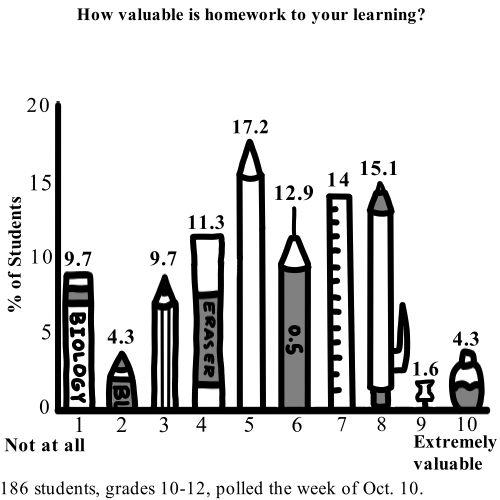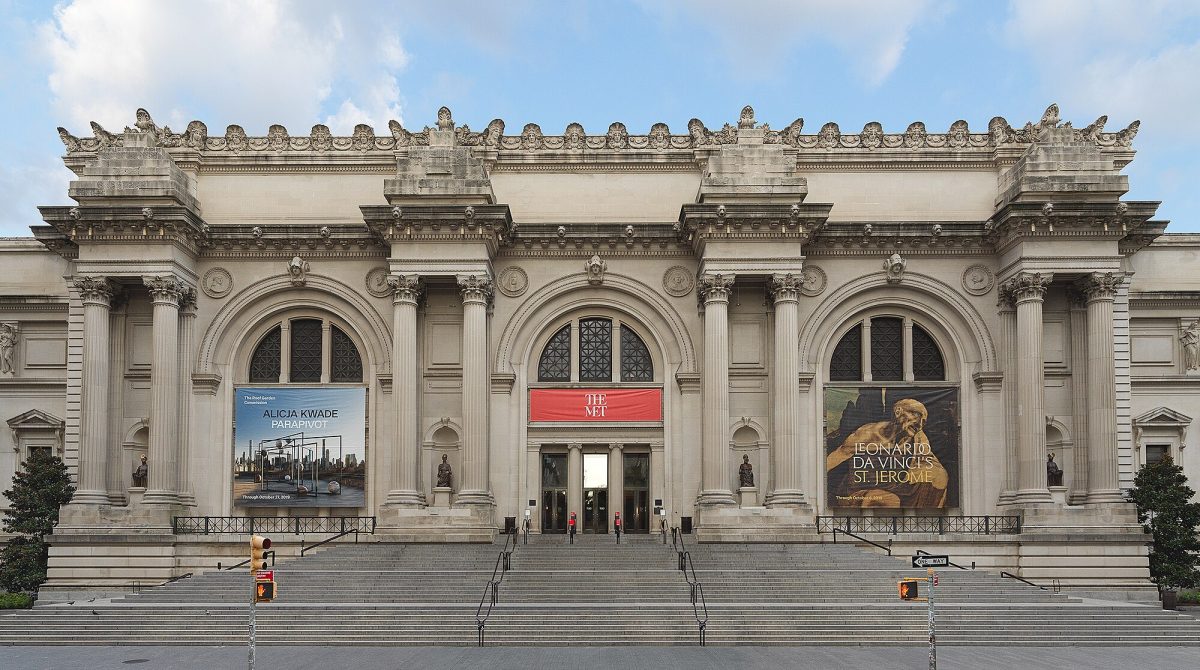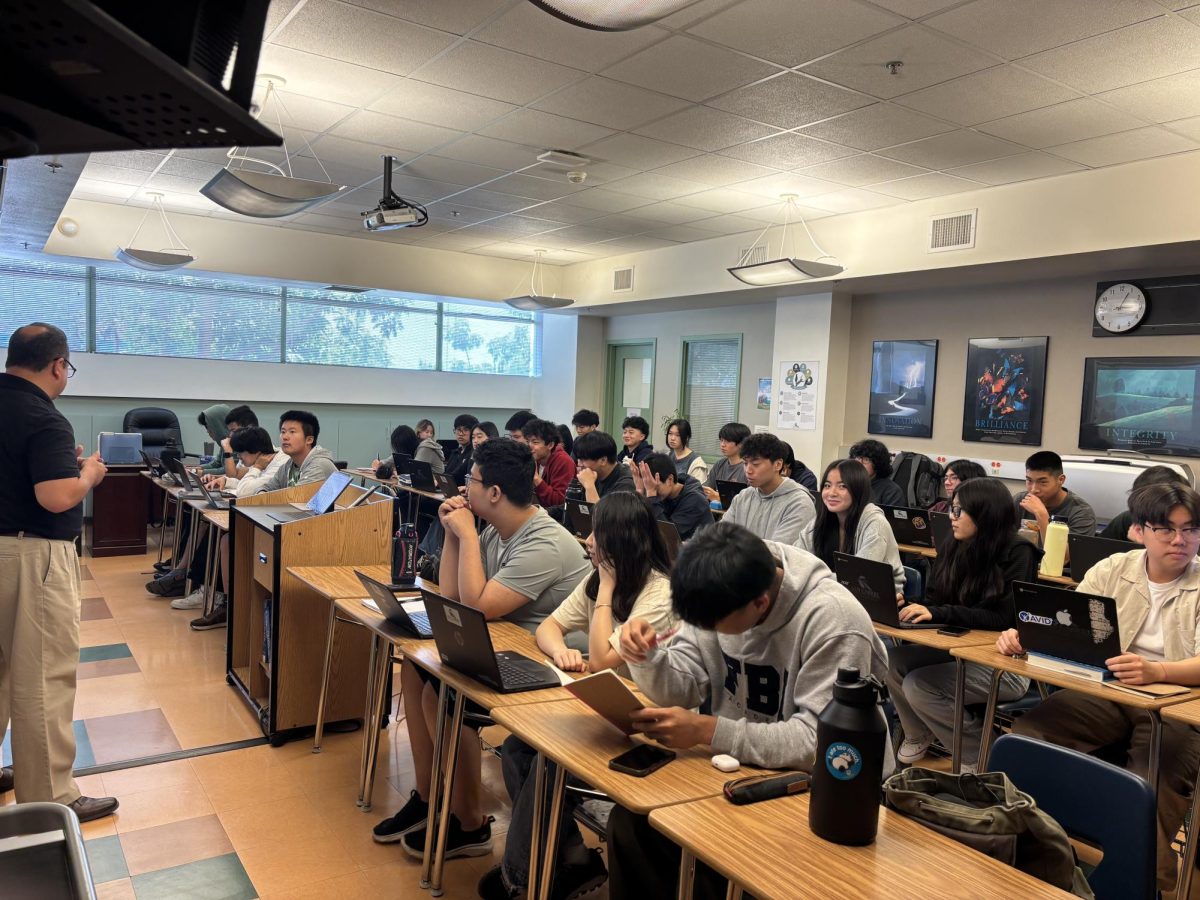
Every day, students at Gabrielino High School go through the daily wringer of classwork for six hours, cramming information in their heads from several subjects at once. When the day is done, they finally get to go home— only to be faced with a pile of work equal to, if not more than, what they did during the school day. The current state of homework loads at Gabrielino provides no reprieve and must be lessened in order to prioritize the health and learning of students.
Currently, homework is a staple of many Gabrielino classes. Most math classes assign problems daily and two-thirds of honors and AP classes assign up to an hour of homework each night, according to the AP Requirement PDF on the Gabrielino website.
While this might seem like a reasonable amount on its own, with a full schedule these workloads become insurmountable. When multiple hours of homework are added to time spent doing extracurriculars, family duties, or jobs, it leaves little room for socialization, sleep, and free time.
Homework is also a major source of stress, which is of pivotal concern for a generation afflicted with mental health issues. According to a survey conducted by Stanford among California high schools, 56 percent of students identified homework as their primary stressor, with 99 percent of those surveyed identifying homework as a stressor in general.
There is scarce justification for heaping hours of homework in light of these consequences. Contrary to popular belief, there is only a marginal correlation between more homework and better grades, according to research from teacher and university lecturer Denise Pope.
Pope’s research also saw “diminishing returns on the value of homework once a student exceeds a certain amount of time spent on it.”
Instead, the focus should shift towards getting more work done during school. According to the Poorvu Center for Teaching and Learning at Yale, students learn most effectively in “active social classrooms where they negotiate understanding through interaction.” There is no need to put such an emphasis on at-home work when students benefit most through practice in-class among peers.
This is also beneficial to students who do not have a home environment conducive to learning. At school, help is easily accessible, as opposed to at home where some students may not have any educational support.
The well-being of students does not have to be at odds with their education. Students spend seven hours at school for a reason— that time should be utilized to do work so that no teenager has to face a pile of assignments when they get home.
Instead of tacking on another sheet of questions for students to toil over after school, take time out of the period to discuss it in class. Not only will this ease the burden on the shoulders of many students, it promotes a deeper understanding of the topic than independent at-home work provides.
If homework must be assigned, the practice should be done on the student’s own terms, either by setting deadlines farther away or making parts of the work optional. Students and teachers must communicate with each other about how much homework is too much homework.
By implementing these shifts in homework policy, homework can turn from an evil to a tool that can help students in their educational growth.






